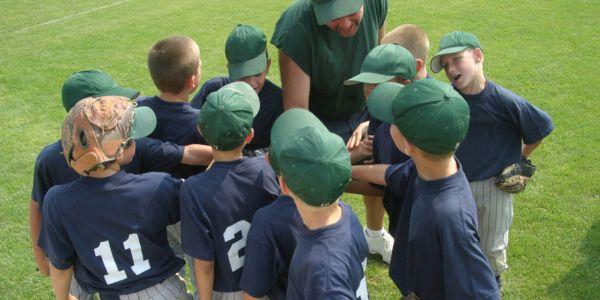Kids’ Motivation in Sports
Your sports kids may show a fair amount of talent, but are seemingly not interested in meeting their potential. Many sports parents want to know how to motivate their kids, yet not pressure them.
You’re unsure how much time you should spend reminding your kids that they need to attend practice. You feel like you’re nagging.
What’s the answer?
How do you get them excited about playing sports?
How do you motivate talented kids who feel as if their coaches don’t appreciate what they have to contribute?
These are all great questions–and ones we receive often from sports parents.
Parents should be concerned about their kids’ motivation in sports. Motivation is one of the keys to success in any endeavor. Athletes can have all the physical talent in the world, but if they can’t act on it with enthusiasm, commitment and dedication, they won’t realize their full potential.
You can learn how to improve your sports kids’ motivation–without burdening them with pressure or high expectations! Sound impossible? Read on!
We’ve just completed a brand new e-book, “How to Motivate Young Athletes,” that tells you just how to do this. More on that later…
First of all, you may not know what motivation looks like in a young athlete. These sports kids love to practice and compete. They get a kick out of working on their weaknesses.
Motivated kids get fired up about competition and expect a lot from themselves. They’re dedicated, committed and want to compete. What’s more, when things get tough, they keep on trying.
Our top tips for raising motivated athletes are all about understanding why kids play sports to begin with–and finding the right sports team that meets these desires.
For example, some kids are natural competitors. You need to ensure they are in a situation that allows them to compete. These kids will get bored if all they do is drills and work on technique.
Other kids play sports to socialize.
They need to have fun with their friends.
Some kids simply love to learn. They need coaches who are focused on helping them improve.
Other athletes enjoy the feeling of “flow” they get while playing sports. They like the sense of being totally immersed and “on.” Coaches who challenge kids and help them achieve their potential will allow these athletes to find that feeling of “flow.”
Our new ebook covers these tips–and many more. You have to be a member of Kids Sports Psychology to get our new e-book.
If you join kidssportspsychology.com, not only will you receive our new e-book about how to motivate young athletes, you’ll have access to many others, including:
-
Ten Ways of Thinking That Hurt Kids’ Confidence
-
Teaching Athletes to Get in the Flow of Sports
-
How Young Athletes Can Think and Perform Like Pros by Using “Get Ready” Routines
-
Mental Imagery: Using Your Imagination in Your “Get Ready” Routine
-
Focus to The Max! How to Focus in Ways that Get You “In the Zone” and Improve Your Performance
Again, to learn more about our Kids’ Sports Psychology e-books written specifically for young athletes visit: Kids Sports Psychology Age-Specific E-books
Related Articles on Youth Sports:
- Help Young Athletes Turn Criticism into Motivation
- Motivational Phrases During Warmup Help Young Athletes
- Sports Parents: Motivation or Pressure
*Subscribe to The Sports Psychology Podcast on iTunes
*Subscribe to The Sports Psychology Podcast on Spotify
Help Young Athletes Boost Confidence in Sports!
Every day, we receive letters from parents like you who want their children and teens to excel in sports. However, these parents can see fear, doubt, and frustration on the faces of their kids who struggle with the “inner” game of sports. But these parents have no idea how to help their kids overcome the worries, expectations and self-defeating thoughts that prevent their young athletes from feeling confident and successful.
You can benefit from our 15-plus years’ of work in sports psychology and sports parenting research. Now, you can tap into our secrets to sports success through a cutting-edge, 14-day program that helps young athletes overcome the top “mental game” challenges that sports parents face—and the top challenges young athletes face.



Kids in the 21st century need an incentive to get higher (learning to avoid stress, exercising to calm tension and build brain cell’s as well as learn the benefits of staying healthy) rather than believing that all the marble’s, so to speak, will fall in their favor. Parents need to sit down and talk to their youngster about setting goals on their own based upon what they are capable of acquiring intellectually and physically. Never will we see student’s in elementary schools get ahead if they don’t have parents who speak with them one on one about what to avoid doing (illegal activities, unnecessary behavior and eating malnourished meals) to give you a few examples. Today kids have to learn the best way they can to get ahead on their own, rather than always following up on others for advice, no matter how many risk are involved. Becoming a cross country runner, at 17, after watching this man from Kenya win the 1989 Boston Marathon has motivated me tremendously ever since. Following this setting I’ve boosted my mental and physical skill’s on my own and shocked several professional doctor’s along the way. And I was just a kid!!!